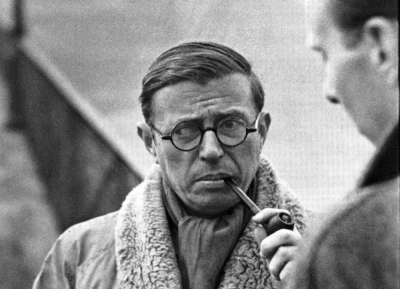
Sartre postulated that past awarded winners did not represent equally all ideologies and nations, and was concerned that his work would be unjustly and undesirably misinterpreted by rightist circles who would criticize “certain past errors.” Sartre, himself, disagreed with particular laureates of past awards, including, interestingly enough, Boris Pasternak who also refused the Nobel Prize in literature in 1957, though for different reasons.
But the refusal was not a theatrical or “impulsive gesture,” Sartre wrote in a statement to the Swedish press, which was later published in Le Monde. It was consistent with his longstanding principles. “I have always declined official honors,” he said, and referred to his rejection of the Legion of Honor in 1945 for similar reasons.
There was another reason as well, an “objective” one, Sartre wrote. In serving the cause of socialism, he hoped to bring about “the peaceful coexistence of the two cultures, that of the East and the West.” (He refers not only to Asia as “the East,” but also to “the Eastern bloc.”)
Boris Pasternak, the Russian author, said to-day that he had “voluntarily” changed his mind about accepting the Nobel Prize and had done so without having consulted even his friends. He told me at his villa ten miles outside Moscow that he had thought over the reaction to the award and decided fully on his own to renounce it.
This morning he wrote in pencil a brief telegram of explanation to the Swedish Academy, carried it himself to the local post office, and so informed the world. The telegram read:
“Considering the meaning this award has been given in the society to which I belong, I must reject this undeserved prize which has been presented to me. Please do not receive my voluntary rejection with displeasure. – Pasternak.”
Picture Credit : Google

